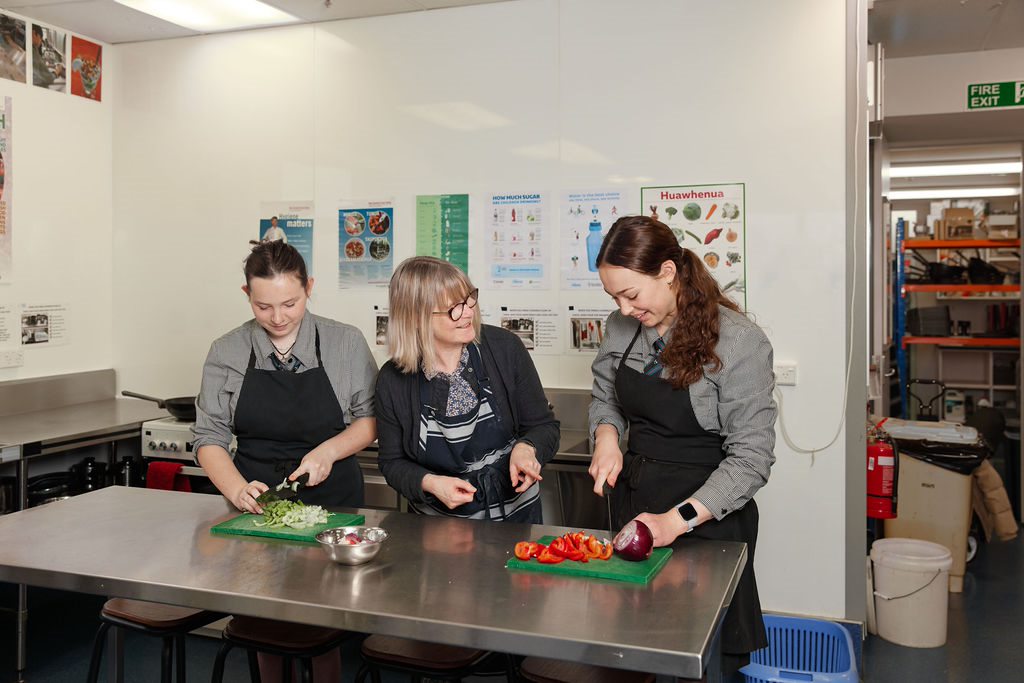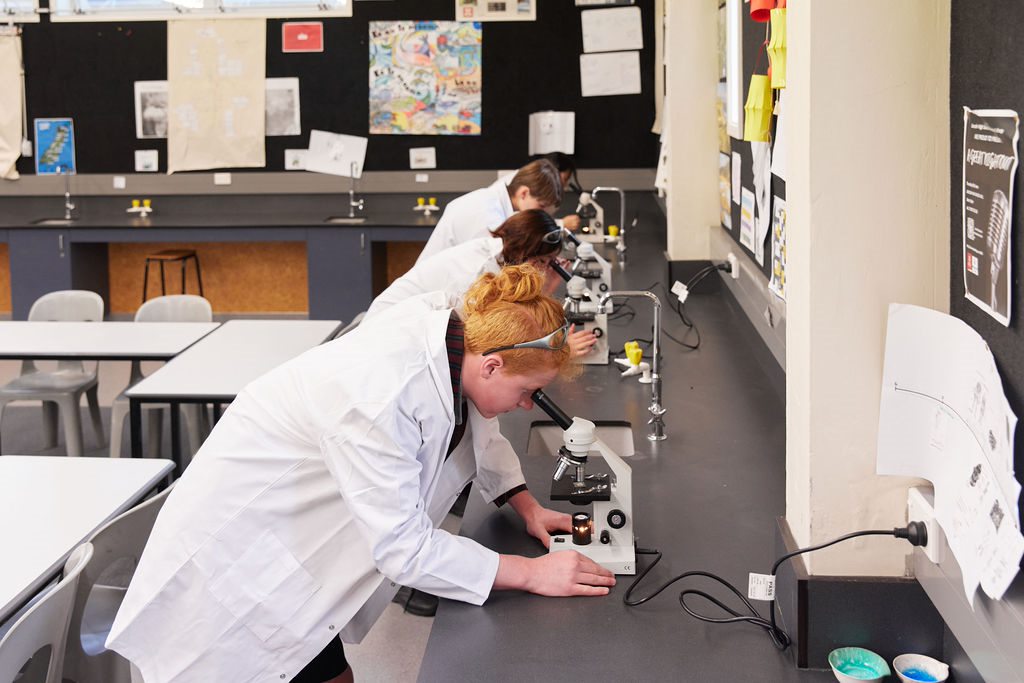Year 11 resolving clashes;
The following quick guide video relates to 2021, however, it still applies to the 2026 timetable. Please note the only change is the deadline for resolving timetable clashes which is
9am Thursday 31st October
Year 12 resolving clashes
The following quick guide video relates to 2021, however, it still applies to the 2026 timetable. Please note the only change is the deadline for resolving timetable clashes which is
9am Thursday 31st October
Year 13 resolving clashes
The following quick guide video relates to 2021, however, it still applies to the 2026 timetable. Please note the only change is the deadline for resolving timetable clashes which is
9am Thursday 31st October

Student & Learning
The purpose of this publication is to indicate to parents, caregivers, whānau and students the range of courses available at Lincoln High School in preparation for 2026 course selection.
Every effort is made to ensure that as many students as possible are able to study the courses they want.
When a student’s first choice of course is not possible (due to a timetable clash, oversubscription, or a course not running, for example) a student's reserve option subject is used and further course counselling will be provided as required. Courses which do not attract a sufficient number of students will not run. Occasionally, due to rooming and resourcing issues (eg specialist course teachers) a course may be withdrawn. However, every attempt is made to ensure the continuity of courses. Year 12 - 13 students should take note of the course recommendations to ensure they are well suited to a course in terms of prior knowledge. Completion of the online course option form by the due date is essential. Late applications may result in missing out on a preferred course, especially if it is over-subscribed. A student’s subject priority is also taken into consideration when finalising class numbers for subjects that are oversubscribed.
Many courses have costs associated with them and the approximate amount is noted in the course information provided. Payment of costs for some courses is not compulsory, but payment of these allows us to continue to provide students with quality resources for their learning. These payments will be referred to as contributions on school invoices. Take home item costs in courses such as Art, workshop and food technology are costs that require payment. Outdoor Education courses require instalment payments at the start of Terms 1-3.
Timetables are finalised early in 2026. Students can access their timetables via the Kamar Portal.

Career and Course Counselling
All students currently attending the school will be able to access advice by a course counsellor (primarily their year level Tutor) to ensure that a sensible and realistic course of study is planned. If a student does not cope in a course that has a recommendation for a future course, they will be directed into alternative future courses. Parents/caregivers will also be involved in this decision and they must approve the proposed course. Course counselling will take place in Terms Three and Four.
Note: 2026 Year 12 and 13 students need to follow their teacher’s course recommendations, which are available on the school portal, when selecting their courses online.

Study The Formula For “Choosing A Course Of Study”
If you need help with your choice of course please see:
- Your present teachers.
- Your Tutor.
- Your Dean.
- Your Linc Teacher.
- The School website.
- www.careers.govt.nz
Research shows that the two main influences on subject choices are:-
- Which subjects your friends are taking.
- Who is teaching a particular subject.
Neither of these should influence your course choice. Your friends may not be in the same class as you next year, even if you take the same courses; and no-one yet knows who will be teaching any course next year. So concentrate on what you need for your future career pathway.
In Year 9 students start the first year of their two year junior programme. Year 9 consists of two semesters (half year-long) with a combination of compulsory courses and option courses chosen by the students.
In Year 9 students will take 12 semester (half-year) courses that include:
a) Compulsory Courses - Two semesters of Health & PE, Mathematics, Science, and one Semester of English and Social Studies. (the reverse happens in Year 10, the second year of the junior programme). Students can choose a Year 9 English optional course (Writing - JWRT) if they want to study two semesters of English courses or if they need assistance in preparing for the NCEA literacy exams in Year 10 and 11.
b) Option Courses - Four semesters of option courses (note: students choose 5 option courses in Year 10, the second year of the junior programme).
Languages: We strongly recommend students do all 3 Junior Semesters of their selected language if they intend doing Languages from Year 11 -13. This will provide a very good foundation that will support student success at NCEA Level 2 and 3.
In Year 10 students complete their junior program by studying a combination of compulsory and option courses, see below. Students are not in core classes when studying their compulsory courses. Classes are mixed, similar to option courses.
Compulsory courses: Students are assigned one semester of Health & PE, Mathematics and Science and two semesters of English and Social Studies. Students can choose a Mathematics option course (JNUM) if they want to study two semesters of Mathematics or if they need assistance in preparing for the NCEA numeracy exams in Year 10.
Option Courses: Students choose five semester courses. They can choose to do one semester course from a subject area e.g. Drama - b or take two semester courses from a subject area, which is equivalent to a whole year course e.g. Drama - b & c.
Languages: We strongly recommend students do all three Junior Semesters of their selected language if they intend doing Languages from Year 11 -13. This will provide a very good foundation that will support student success at NCEA Level 2 and 3.
Enrichment: Most courses provide opportunities for enrichment tasks. Some students may want to study a/some Year 11 semester courses. They should contact the Year 10 Tutor (Miss Vernall, KVE) first before completing their course selections, to ensure they are adequately suited to studying Year 11 courses.
Please note:
- A few Year 10 semester courses (e.g. languages and music) require you to complete semester a first, before doing semester b or, semester b before semester c. Please read the course recommendations carefully to be aware of these details.
- As part of the Health & Physical Education curriculum, students attend a three-day camp in Term Four.
- Placement into next year’s Year 11 courses is dependent on Year 10 results.
- It is important to check recommendations and associated fees for all courses in the course descriptions.
Students don’t complete NCEA Level 1 in Year 11. Instead, we focus on all students having NCEA literacy and numeracy (most will have achieved this in Year 10). In addition, students get to experience a variety of courses that can be studied in depth. In some Year 11 courses there may be a small number of Level 2 credits on offer. The content covered in each course will include the knowledge required to continue into Year 12 for that particular course. In summary, Year 11 and 12 are dedicated to the completion of Level 2 NCEA.
Semester Courses:
Year 11 students study 12 semester (half year) courses. This equates to six year-long courses. English and Mathematics are compulsory, but Science is also strongly recommended. Students are required to select two English and two Mathematics semester courses (a year of each). The remaining eight semester courses can be made up of:
- selecting single courses from a subject area eg: 11BIOa (Biology-Human)
or
- selecting two courses from a subject area eg: 11BIOa and 11BIOb. This equates to a whole year of Biology.
A few semester two courses require you to complete semester one first, before doing semester two.
These semester two courses have an * at the end of their code:
-
- Visual Arts (11ARTc*)
- Chinese -Part 2 (11CHIb*)
- French – Part 2 (11FREb*)
- German – Part 2 (11GERb*)
- Japanese – Part 2 (11JPEb*)
Note: It is important to check recommendations and associated fees for all courses in the course descriptions.
In English, you will choose two English courses.
If you need more support with literacy, you can choose 11ENLa & b English Literacy as one of your courses.
Year 12 students study six year-long courses (see individual course details and Course Planning Chart). There are no compulsory courses, however, English and Mathematics are strongly recommended.
Students have the option of studying five courses. In such cases, students will be placed in the Independent Learning Project (ILP001) course, in addition to their five courses, so that they can be mentored and have their progress monitored.
Prior to selecting courses online, students should consider discussing their possible options with this year’s teachers as well as attend the Course Selection afternoon.
Note: It is important to check recommendations and associated fees for all courses in the course descriptions.
Year 13 students study five year-long courses (see individual course details and Course Planning Chart) and have an Independent Study (IST). A sixth course can be selected in place of IST. Students have the option of studying four courses. In such cases, students will be placed in the Independent Learning Project (ILP001) course, in addition to their four courses, so that they can be mentored and have their progress monitored.
For students that are intending to gain University Entrance it is strongly recommended that they select at least four University Entrance approved courses. Refer to individual course details to check if a course is a University Entrance approved subject
Year 13 (IST) is independent, unsupervised learning that can take place at school or at home. Students are responsible for managing their work during this time.
Prior to selecting courses online, students should consider discussing their possible options with this year’s teachers as well as attend the Course Selection afternoon.
Students who have not completed NCEA Level 2 while in Year 12 may receive a customised timetable to support the completion of NCEA Level 2 while in Year 13.
Note: It is important to check recommendations and associated fees for all courses in the course descriptions.
Key Dates
Get the diary out and pencil in these important dates.
